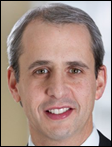The article about Pediatric Associates in CA has a nugget with a potentially outsized impact: the implication that VFC vaccines…
Readers Write: Missed Appointments Affect More Than Just Revenue
Missed Appointments Affect More Than Just Revenue
By Jeff Peres

Most physicians and practice managers know that missed appointments are bad for business. How bad? Some experts say that these no-shows and late cancellations cost the American healthcare system more than $150 billion per year, and individual practices between $100 and over $1,000 per appointment, depending on specialty and location.
And these figures reflect just lost revenue, not the additional costs associated with lost staff time and sicker patients. Also hidden behind the numbers is the level of frustration experienced by patients who must wait longer to get an appointment because doctor schedules appear full, even though each day brings a few more unfilled seats.
Yes, last-minute appointment cancellations and no-shows drain your bottom line, but their implications lie elsewhere in your practice, too.
Patients don’t get the care they need
There are a myriad of reasons why your patients may not be showing up for their visits — money, nerves, or a lack of convenience or appointment availability all can play a role. And these missed appointments have very real, negative implications for their health. The scope of the problem is enormous: Some 49 million adults skipped recommended care in 2012 because of cost alone.
Some studies have indicated no-show rates in community practices ranging from 5 percent to 55 percent. These missed sessions disrupt continuity and compromise quality of care for the patients who miss the appointments and for those who “would have been scheduled in those appointment slots,” according to Family Medicine.
Patient satisfaction takes a hit
It’s not just the cancellation or no-show who is negatively affected by a missed appointment — the health of other patients, not to mention their opinion of the practice, suffers too. That’s because every missed appointment could have been filled by another (potentially ill) person, inadvertently increasing the length of time that patients have to wait to see the doctor.
Captain Kim Decker, chief of the Martin Army Community Hospital Healthcare Management Division at Fort Benning in Georgia, puts it succinctly: “An appointment missed by you is an appointment missed by two.” In other words, the person who misses an appointment is likely to need to re-book, and “whoever didn’t get an appointment initially is also still needing one.”
Frustration is more than understandable. The average cumulative wait time to see a family physician in 15 US markets was just shy of three weeks in 2014. One Consumer Reports survey of 1,000 Americans showed that “difficulty in getting an appointment when sick” ranked among the top five biggest complaints that patients have about their doctors.
Further, the problem may actually compound itself: some studies indicate that no-show rates increased and the “likelihood an appointment would be kept decreased” the further in advance an appointment was scheduled. In other words, missed appointments cause longer wait times, and vice versa.
Your staff loses valuable time
When patients do call to let a practice know that they won’t be able to make their appointment, the great scramble to fill the now-vacant appointment begins. If there is no good system in place to keep track of people on the waiting list hoping for an earlier appointment, the result could be duplicative phone calls, double-booking, or worse, patients could fall through the cracks.
What can be done?
There are a few simple steps to addressing the problem of late cancellations and no-shows that your practice should start taking right away. The first is making regular reminder calls and/or sending reminder texts around two days in advance of a given appointment. Reminding patients the day or night before doesn’t leave time to fill the appointment in the event of a cancellation, and reminding them too many days ahead allows too much time to forget. Additionally, letting patients who call to cancel or reschedule know that it could take up to a month or two months to get another appointment can help incentivize them to keep their originally scheduled slots.
Because we know that patients who can schedule their appointments in the near future are less likely to cancel than those who schedule many weeks in advance, it can also be helpful to set aside a few hours of each day (or every other day) for walk-ins or same-day appointments. This allows patients in need of acute care or patients who simply desire the flexibility to receive same-day care to feel accommodated by your practice.
Cloud- and app-based scheduling systems, which put the power to book and adjust appointments in real time into the hands of patients, can help reduce the rate of no-shows and cancellations, as well as lengthy phone wait times. With online scheduling becoming the norm for everything from vehicle emissions testing to haircuts, people are used to (and will appreciate the convenience of) being able to access their appointments on a mobile device.
Spending valuable time on a wild goose chase for patients is not cost-effective and takes front desk staff away from their other duties, including greeting and checking in patients, as well as communicating with doctors and nurses about the status of the waiting room and more. Consider the suggestions above to make your practice’s unfilled seats a thing of the past.
Jeff Peres is Co-Founder and CEO of Everseat in Baltimore.
Contacts
Jennifer, Mr. H, Lorre, Dr. Jayne, Dr. Gregg, Lt. Dan
More news: HIStalk, HIStalk Connect.
Get HIStalk Practice updates.
Contact us online.
Become a sponsor.

